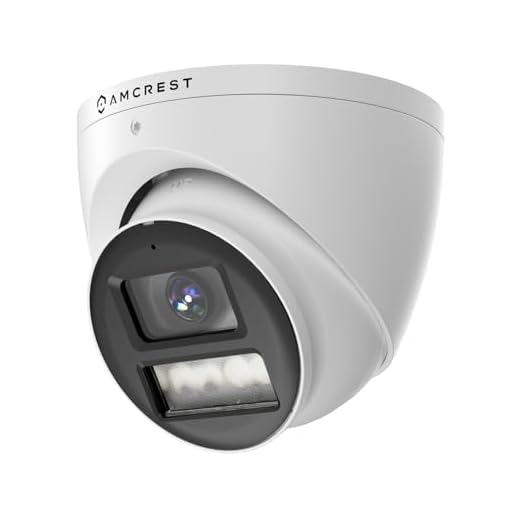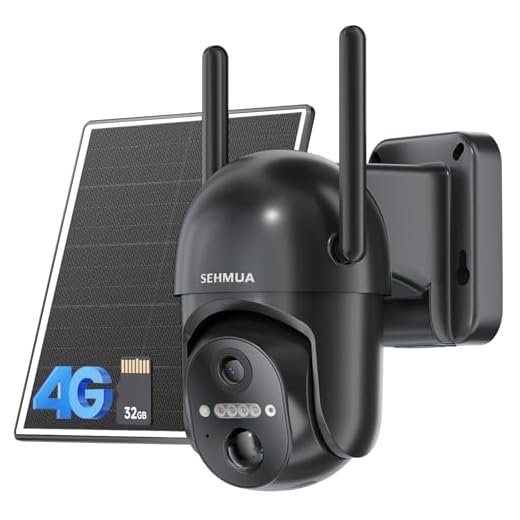




Home security cameras have become an essential tool for protecting our homes and loved ones. With the advancement of technology, many security cameras now come equipped with wifi connectivity, allowing for remote monitoring and alerts. But what if you don’t have access to wifi? Can home security cameras still function effectively without it?
The short answer is yes, home security cameras can work without wifi, but with limitations. While wifi connectivity offers convenience and advanced features, there are options available for those who prefer or need a non-wifi security camera system.
Traditional wired security cameras, such as analog CCTV cameras, can be a reliable alternative for areas without wifi coverage. These cameras are hardwired to a recording device or monitor, providing continuous surveillance without relying on internet connectivity.
Do Home Security Cameras Work Without Wifi
Home security cameras typically rely on a Wi-Fi connection to transmit footage to your smartphone or computer. However, there are some cameras that can work without Wi-Fi, offering alternative ways to store and access video recordings.
Features of Security Cameras Without Wifi
Some security cameras come with built-in storage options such as SD cards or internal memory, allowing them to record footage locally without the need for Wi-Fi. These cameras may also offer the option to connect directly to a monitor or DVR for viewing.
Limitations of Security Cameras Without Wifi
While cameras without Wi-Fi can still capture footage, they may not offer remote access or real-time alerts without an internet connection. Additionally, the storage capacity of these cameras may be limited, and they may not be able to support advanced features like cloud storage or smart home integration.
| Pros | Cons |
|---|---|
| Can record locally | Lack of remote access |
| No reliance on Wi-Fi | Limited storage capacity |
| May offer direct viewing options | May lack advanced features |
Benefits of Wifi-Free Security Cameras
While wifi-connected security cameras offer convenience and remote monitoring, wifi-free security cameras also come with their own set of benefits:
1. No Dependence on Internet Connection
Wifi-free security cameras operate independently of the internet, ensuring continuous monitoring even during internet outages or disruptions.
2. Increased Privacy and Security
Since wifi-free security cameras do not transmit data over the internet, they provide an added layer of privacy and security, reducing the risk of hacking or unauthorized access.
- Enhanced Security: Without wifi connectivity, the risk of cyberattacks is minimized, ensuring your footage remains secure.
- Privacy Protection: With no internet connection, there is no risk of data breaches or unauthorized access to your camera feed.
Overall, wifi-free security cameras offer a reliable and secure surveillance solution without the need for an internet connection.
Types of Security Cameras Without Wifi
When it comes to security cameras that don’t require wifi, there are several types to choose from:
1. Wired Security Cameras: These cameras are connected directly to a recording device via cables, so they do not rely on wifi for operation. They provide a reliable and secure monitoring solution.
2. Cellular Security Cameras: These cameras use cellular networks to transmit data, so they can work without wifi. They are suitable for remote locations or areas with poor wifi coverage.
3. Battery-Powered Security Cameras: These cameras run on batteries and store footage locally on a memory card. They are easy to install and can be placed anywhere without the need for wifi.
4. Analog Security Cameras: These cameras use analog signals to transmit video footage to a recording device. They are a traditional and reliable option for those looking for a wifi-free security camera solution.
Features to Look for in Wifi-Free Cameras
When considering home security cameras that do not require wifi, there are several key features to look for to ensure you get the best option for your needs:
- Local Storage: Look for cameras with built-in storage options such as SD cards or DVRs to store footage locally.
- Battery-Powered: Opt for cameras that are battery-powered for easy installation without the need for wiring or power outlets.
- Motion Detection: Choose cameras with motion detection capabilities to alert you of any suspicious activity.
- Night Vision: Ensure the camera has night vision capabilities for clear footage in low-light conditions.
- Weatherproofing: If you plan to use the camera outdoors, make sure it is weatherproof to withstand the elements.
- Easy Installation: Look for cameras that are easy to set up and install without the need for technical expertise.
Installation Process of Wifi-Free Cameras
Installing wifi-free security cameras is a straightforward process that can be done by following these steps:
1. Choose a Suitable Location
Decide where you want to place the camera for optimal coverage. Make sure it is within the camera’s range and has a clear view of the area you want to monitor.
2. Mount the Camera
Use the mounting hardware provided with the camera to securely attach it to the chosen location. Make sure it is stable and positioned correctly for the best view.
Note: Some wifi-free cameras come with a magnetic base that allows for easy mounting on metal surfaces.
By following these simple steps, you can easily install and set up a wifi-free security camera to keep your home safe and secure.
Recording and Monitoring Options
While home security cameras may not work without wifi for live streaming and remote access, there are still recording and monitoring options available for offline use.
Many security cameras come with built-in storage options such as SD cards or local hard drives. These devices allow the camera to record footage locally without the need for an internet connection. Users can then access the recorded footage directly from the camera or remove the storage device to view the recordings on a computer.
Additionally, some security cameras offer the option to connect to a DVR (Digital Video Recorder) or NVR (Network Video Recorder) for continuous recording and monitoring. These devices can store a large amount of footage and provide advanced features like motion detection and remote access via a mobile app.
For those looking for a more traditional approach, there are also analog security cameras that can be connected to a monitor or TV for real-time monitoring without the need for wifi. While these cameras may not offer the same level of convenience as wifi-enabled cameras, they can still provide a reliable security solution for monitoring your home.
Storage Options for Non-Wifi Cameras
Since non-wifi cameras do not connect to the internet, they typically come with onboard storage options such as SD cards or internal memory. These storage options allow the cameras to record and store footage locally without the need for a wifi connection.
SD cards are a popular choice for non-wifi cameras as they are easy to use and provide a convenient way to store recorded footage. Some cameras may also have the option to connect an external hard drive for additional storage capacity.
It’s important to regularly check and manage the storage on non-wifi cameras to ensure that there is enough space to continue recording footage. Deleting old recordings or transferring them to a computer or external storage device can help free up space for new recordings.
Overall, non-wifi cameras offer reliable storage options that allow for continuous recording without the need for an internet connection.
Remote Access and Control
One of the key features of home security cameras is the ability to remotely access and control them. While many cameras require a Wi-Fi connection for full functionality, there are options available for those without Wi-Fi access.
Mobile App Access
Some home security cameras come with mobile apps that allow you to access live footage and control the camera remotely. These apps typically use cellular data or other networks to connect to the camera, enabling you to monitor your home even without Wi-Fi.
Cloud Storage and Playback
Another option for accessing footage from security cameras without Wi-Fi is through cloud storage. Cameras with cloud storage capabilities can store footage remotely, allowing you to view recordings through a web portal or mobile app. This enables you to access and review footage even when you’re not connected to a local network.
Compatibility with Smart Home Systems
Many modern home security cameras are designed to be compatible with smart home systems, such as Amazon Alexa, Google Assistant, and Apple HomeKit. This means that you can easily integrate your security cameras into your existing smart home setup and control them using voice commands or through a central hub.
By connecting your security cameras to a smart home system, you can enjoy additional features such as remote access, notifications, and automation. For example, you can receive alerts on your smartphone when motion is detected, or program your cameras to automatically turn on when you leave the house.
Cost Comparison with Wifi-Enabled Cameras
When considering home security cameras that work without wifi, it’s important to compare the costs with wifi-enabled cameras. While non-wifi cameras may be cheaper upfront due to their simpler technology, there are also ongoing costs to consider.
Initial Cost
Non-wifi security cameras typically have a lower initial cost compared to their wifi-enabled counterparts. This is because they don’t require as much technology or connectivity components.
Ongoing Costs
However, non-wifi cameras may require additional storage solutions, such as SD cards or external hard drives, which can add to the overall cost over time. In contrast, wifi-enabled cameras often come with cloud storage options that may require a subscription fee but offer convenience and peace of mind.
| Factor | Non-Wifi Cameras | Wifi-Enabled Cameras |
|---|---|---|
| Initial Cost | Lower | Higher |
| Ongoing Costs | Potentially higher due to storage needs | May include subscription fees for cloud storage |
Ultimately, the choice between wifi and non-wifi security cameras will depend on your specific needs, budget, and preferences. Consider the total cost of ownership, including both upfront and ongoing expenses, to make an informed decision.






